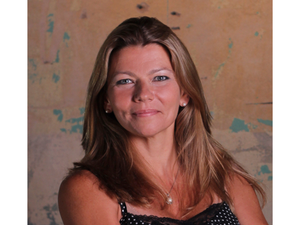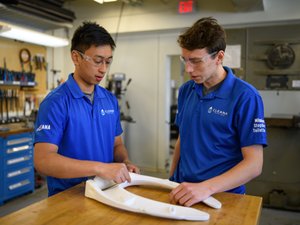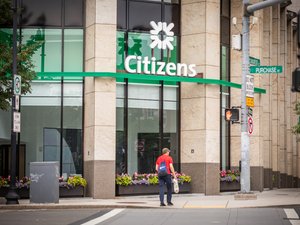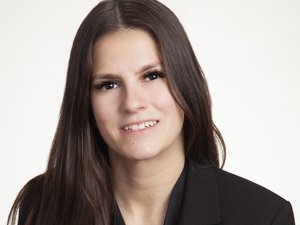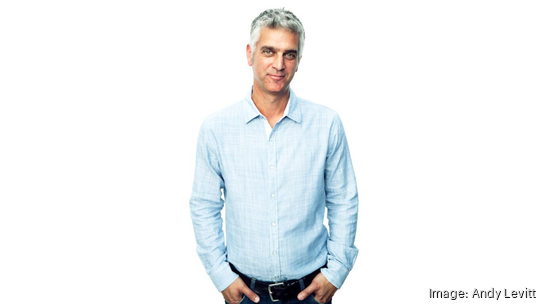
A new startup is in the works, looking to serve food-rescue organizations, companies seeking to reduce their carbon footprint and the environment.
Serial entrepreneur Andy Levitt is building his latest company, Brightly Ventures, to help fund food-rescue organizations by quantifying their environmental impact and selling carbon credits to corporate buyers.
Brightly Ventures has raised $100,000 from investors and aims to bring in a total of $2 million, according to a recent filing with the U.S. Securities and Exchange Commission.
From pharma to food
Brightly is Levitt’s third company. But before scratching his entrepreneurial itch, Levitt said he spent about 13 years working in “corporate America” doing sales, marketing and strategy at pharmaceutical companies. After getting laid off from Genzyme back in 2006, Levitt said he decided to give it a go on his own.
His first startup was HealthTalker, a word-of-mouth marketing agency that served pharmaceutical and biotech clients. Levitt sold that business after a little over five years. His next business was Purple Carrot, a plant-based meal kit company that he launched in 2014. Levitt said he was intrigued by the idea of food as medicine rather than the more traditional Western medicine approach he had been part of in the pharmaceutical industry. In 2019 he sold Purple Carrot to a Japanese firm and stayed on for three years.
It was at the end of his time at Purple Carrot that the seeds for Brightly were planted.
Levitt said he was working on a corporate social responsibility plan when he came across The Farmlink Project. The nonprofit was started by college students and diverted food from landfills to food banks. After leaving Purple Carrot, Levitt worked with the nonprofit as a consultant for several months.
“That’s where I gained this unique insight into the incredible connective tissue, the incredible connection between food waste and climate change,” Levitt said.
The Environmental Protection Agency estimated that the yearly food waste of the U.S. equals 170 million metric tons of carbon dioxide. That’s about the amount of CO2 emissions from 42 coal-fired power plants.
Sign up for The Beat, BostInno’s free daily innovation newsletter from BostInno reporter Hannah Green. See past examples here.
Building a for-profit doing environmental good
Inspired by The Farmlink Project, Levitt set out to create a company that would benefit food-rescue organizations, companies seeking to offset their carbon footprint and the environment.
Brightly Ventures will work with food-rescue organizations to quantify the methane emissions they help avoid by diverting food from a landfill to food banks. The company will then generate carbon-offset credits based on that analysis and sell the credits to companies who are trying to meet their own net-zero goals.
Levitt said he thinks Brightly has a big opportunity in the market by focusing solely on carbon credits for food waste. He said that over the next few years, he also expects the price and demand for carbon credits to increase because many companies have goals to be carbon neutral or net zero by 2030.
“More companies have pressing objectives to hit and won’t be able to do it internally,” Levitt said.
The food-rescue organizations will receive the majority of proceeds from these deals. But Levitt said Brightly is a for-profit company.
“That should still allow us to become a sustainably profitable business,” Levitt said.
Brightly's three goals
Brightly is working toward three main goals right now, Levitt said. The first is fundraising. Levitt said the initial $100,000 investment was from the Collaborative Fund. He said they’re in discussions with a number of venture capitalists and angel investors to raise up to $2 million in a seed round.
The company is also in “late-stage discussions” with what Levitt called three of the largest independent food banks in the U.S. and other organizations within the Feeding America network.
The team is also lining up corporate buyers for the carbon credits. Levitt said they have one buyer confirmed.
“As corporations start buying Brightly credits and as food rescue organizations start to work with us to have us quantify their methane emissions that they’re avoiding, it starts to become much more commonplace for everyone to do this,” Levitt said. “We’re in that early-adoption phase right now, before we sort of hit mainstream.”
